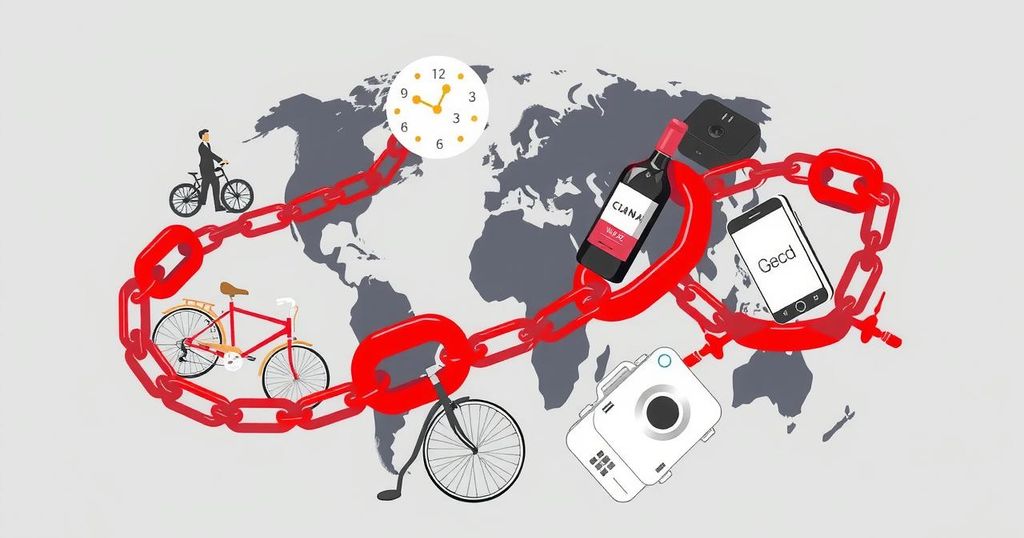President Trump announced a 10% tariff on all imports, including a striking 38% levy on goods from Guyana. This move signals an escalation in trade tensions and could lead to retaliatory tariffs from global partners. Economic experts warn of potential negative impacts on the global economy and higher consumer prices in the U.S.
In a significant escalation of trade tensions, President Donald Trump announced a new 10% baseline tariff on all imports to the U.S., along with targeted tariffs on key trading partners. Notably, a 38% tariff has been instituted specifically for goods coming from Guyana. This development presents a stark reversal of global trade liberalization trends established over decades, setting the stage for potential retaliatory measures from affected countries.
During an announcement at the White House Rose Garden, Trump claimed, “It’s our declaration of independence,” while highlighting additional tariffs of 34% on China and 20% on the European Union as a response to pre-existing tariffs on U.S. goods. While immediate details remain sparse, the tariffs are indicative of Trump’s long-standing frustrations with international trade dynamics, claiming they adversely affect American workers and companies.
The trade policy shift has caused anxiety in financial markets and among businesses reliant on established trading systems dating back to 1947. Although the tariffs are set to take effect swiftly, formal enforcement notices are pending. However, a previously announced set of auto tariffs is confirmed to commence on April 3.
Trump’s administration previously imposed 20% tariffs on imports from China and 25% on steel and aluminum, extending these tariffs to approximately $150 billion worth of downstream products. Advisors suggest these measures are aimed at revitalizing essential manufacturing within the U.S.
Economic experts have expressed concerns that these tariffs could decelerate global economic growth, heightening recession risks and significantly increasing living expenses for American households. The ongoing tariff discourse has hampered manufacturing activities and prompted sales surges in imported goods as consumers seek to buy before price hikes. The financial markets reacted negatively in anticipation of the announcement, with U.S. stock values dropping nearly $5 trillion since February.
This article emphasizes the strategic implementation of tariffs by the Trump administration, marking a resolute shift in U.S. trade policy. The 38% tariff on Guyana’s goods signifies heightened trade tensions, further exacerbated by potential retaliatory actions from affected countries. Economic forecasts suggest that these tariffs may burden U.S. families and disrupt both domestic and global economic stability.
Original Source: www.stabroeknews.com






